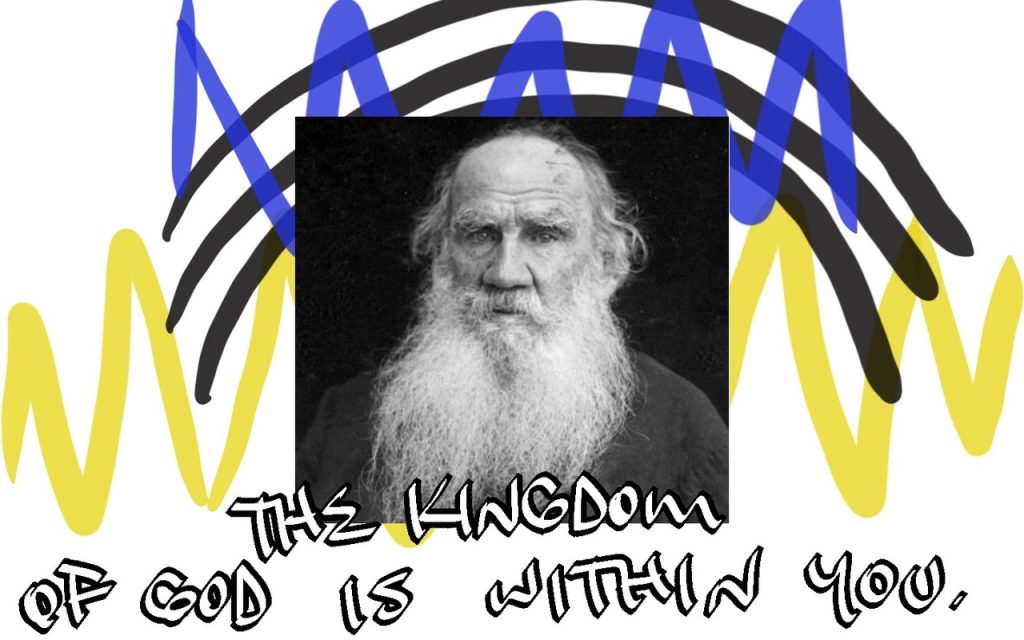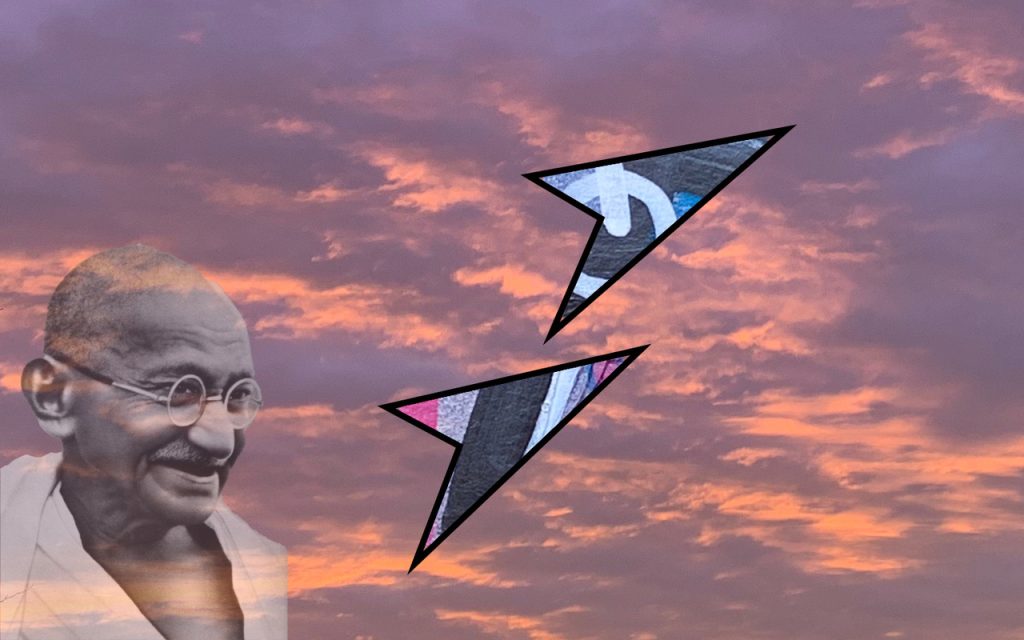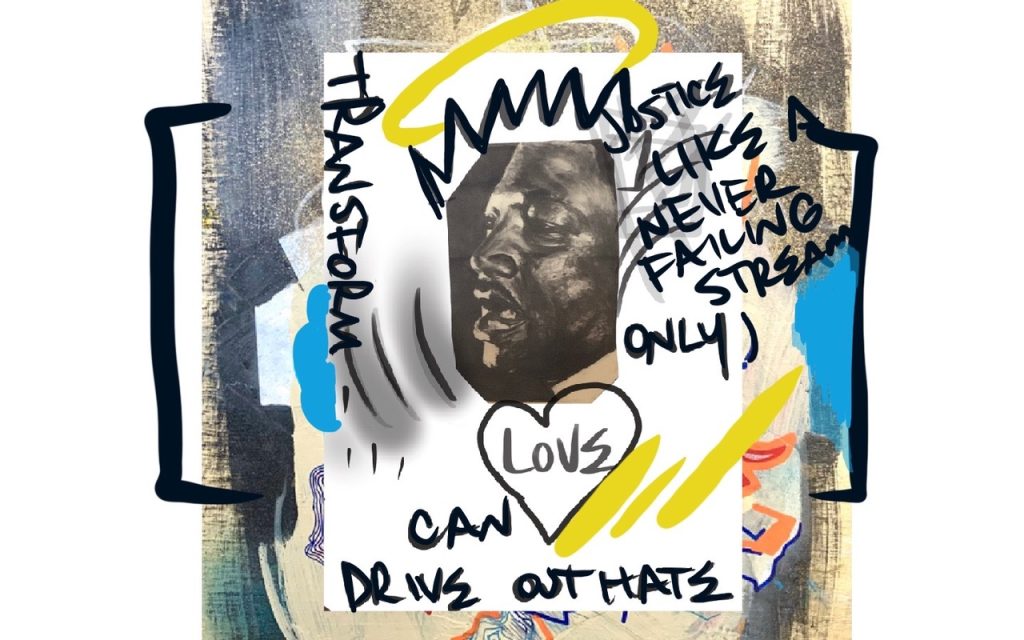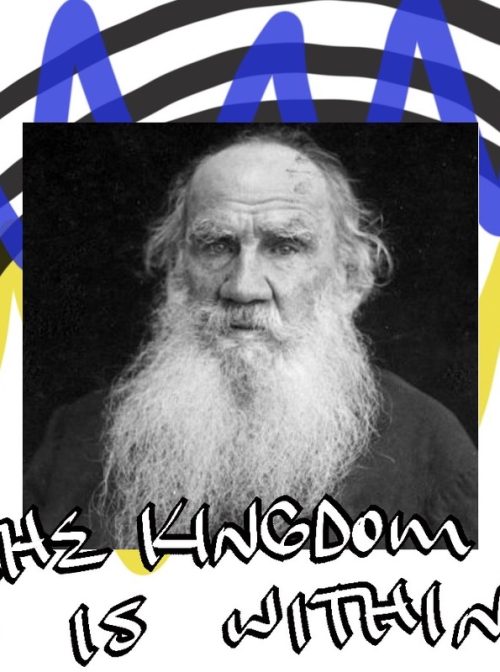In the last few decades, a particular philosophy has shaped the world of activism – non-violence.
This is the more politically active pacifism outlined by philosophers like Thoreau and others, but the roots of this philosophy may surprise you. In the far reaches of history, it has been brought to us through the figure of Jesus and His words in the Sermon on the Mount:
“You have heard that it was said, ‘Love your neighbor and hate your enemy.’ But I tell you, love your enemies and pray for those who persecute you, that you may be children of your Father in heaven.” Matthew 5:43-45 (New International Version)
These words have been hard to swallow, considering those who identify themselves as Christians have found cause to sidestep the responsibility of the believer coined in these words.
However, an artist in the 19th century took a more succinct and direct view of this passage and scripture, and its implications have been far-reaching.

Russian writer Leo Tolstoy once went to war and found out he would not have to work for the rest of his life because of an inheritance. He spent the subsequent decades of his life writing some of the most well-known works in the pantheon of modern literature, including “War and Peace” and “Anna Karenina.” He defended the poor and communicated the lives of peasants and those who lived simple lives to the elite of Russia. A literary sensation at a young age, his later years were characterized by his short stories and his philosophical works “What is Art?” and “The Kingdom of God is Within You.”
“The Kingdom of God is Within You” was published in 1894 and contains a sophisticated takedown of mainstream, orthodox Christianity. His interpretation of the Sermon on the Mount sent shame toward those who have shed blood as a requirement of devotion to Christ. “Love your enemies,” a simple phrase, becomes a philosophy and way of life articulated as non-resistance to evil or non-violence, as we have come to call it.

Humans employ many mental and verbal gymnastics to weaken the standard and expectation of “true Christianity.” Its astounding presence has influenced the most critical challenges to unjust, racist state rule in the last one hundred years. Gandhi called Tolstoy “the greatest apostle of non-violence that the present age has produced.” As a result, his philosophy also influenced the Civil Rights Movement, popularized by Martin Luther King, who was introduced to him by Bayard Rustin.
To this day, the legacy of Leo Tolstoy has been inextricably linked to the rise of Lenin and communism, which is why he remains persona non grata to the church and government of Russia. Yet his creative and utopian vision for the world has challenged the limits of our morality and compassion. The words from Christ ring true for this artist and adherent:
“A prophet is not without honor except in his own town, among his relatives, and home.” Mark 6:4 (New International Version)

Nathan “Bam” Stanton has been an artist working in mediums that include painting, writing and speaking for over 20 years. His most recent journey included working as a pastor in Chicago for 13 years and founding a not-for-profit, Forgive.Us., an organization dedicated to encouraging artists to speak out about injustice. It’s founding was followed by a 20,000 mile RV trip around the country to host Forgive Us events. His heart is to build a bridge on which division in America can heal. Bam is now embarking on his next mission, to motivate and inspire businesses, organizations and schools into forgiveness, resilience and creativity. His work has been also been featured in WBBM Chicago, RV Today, Rootless and Rova Magazines. He currently resides in Oak Park, Illinois with his wife and 5 children.




